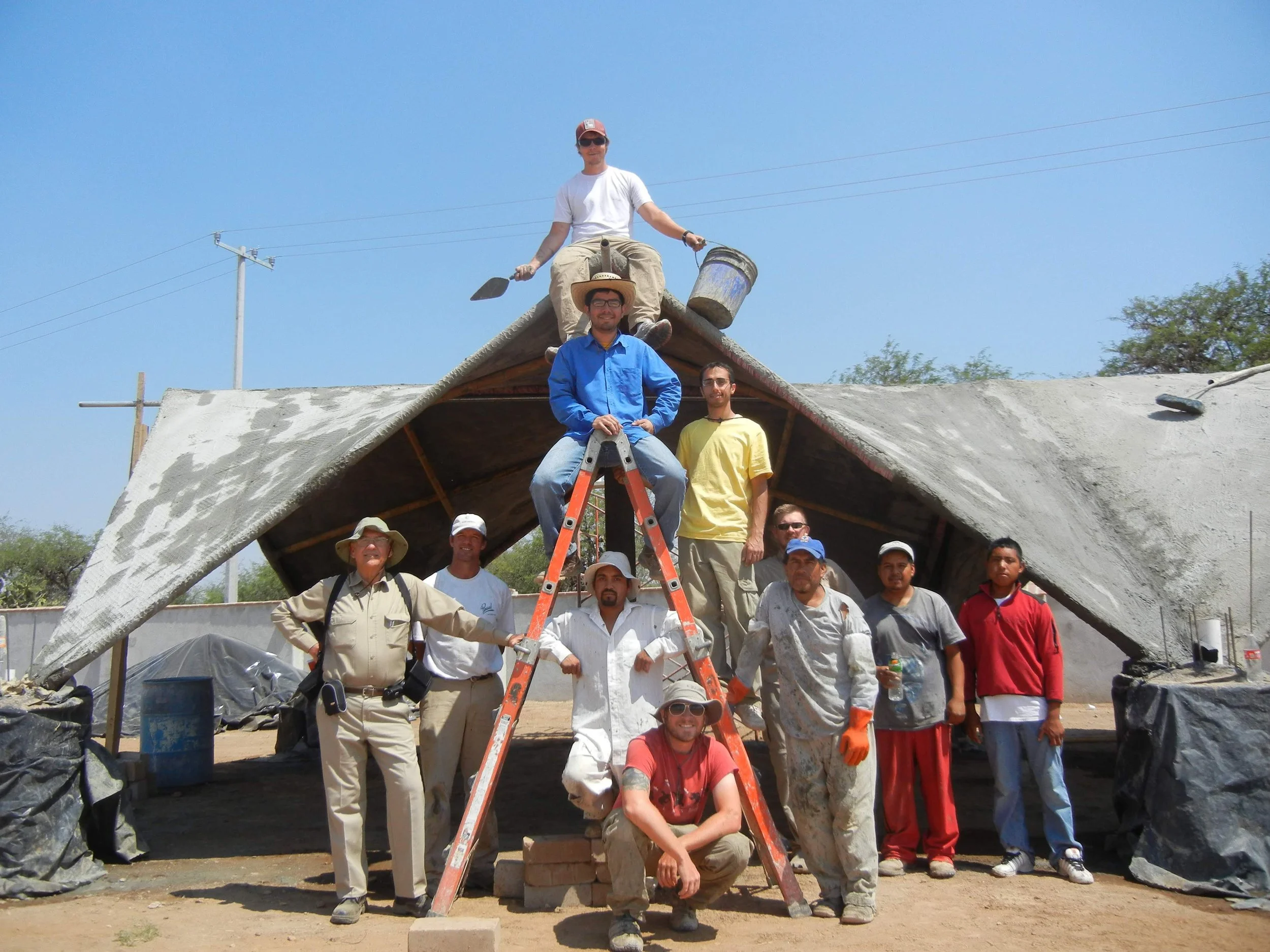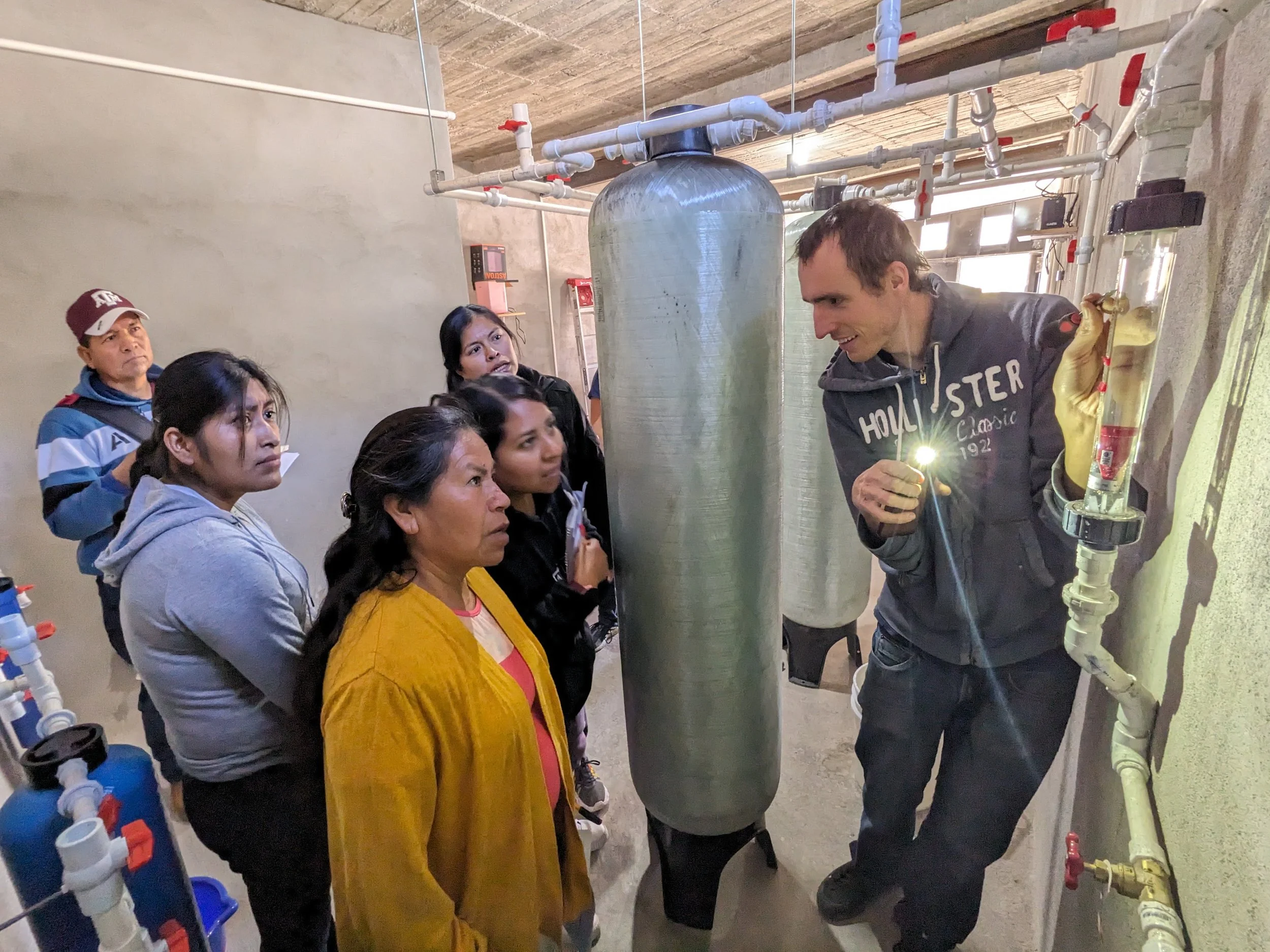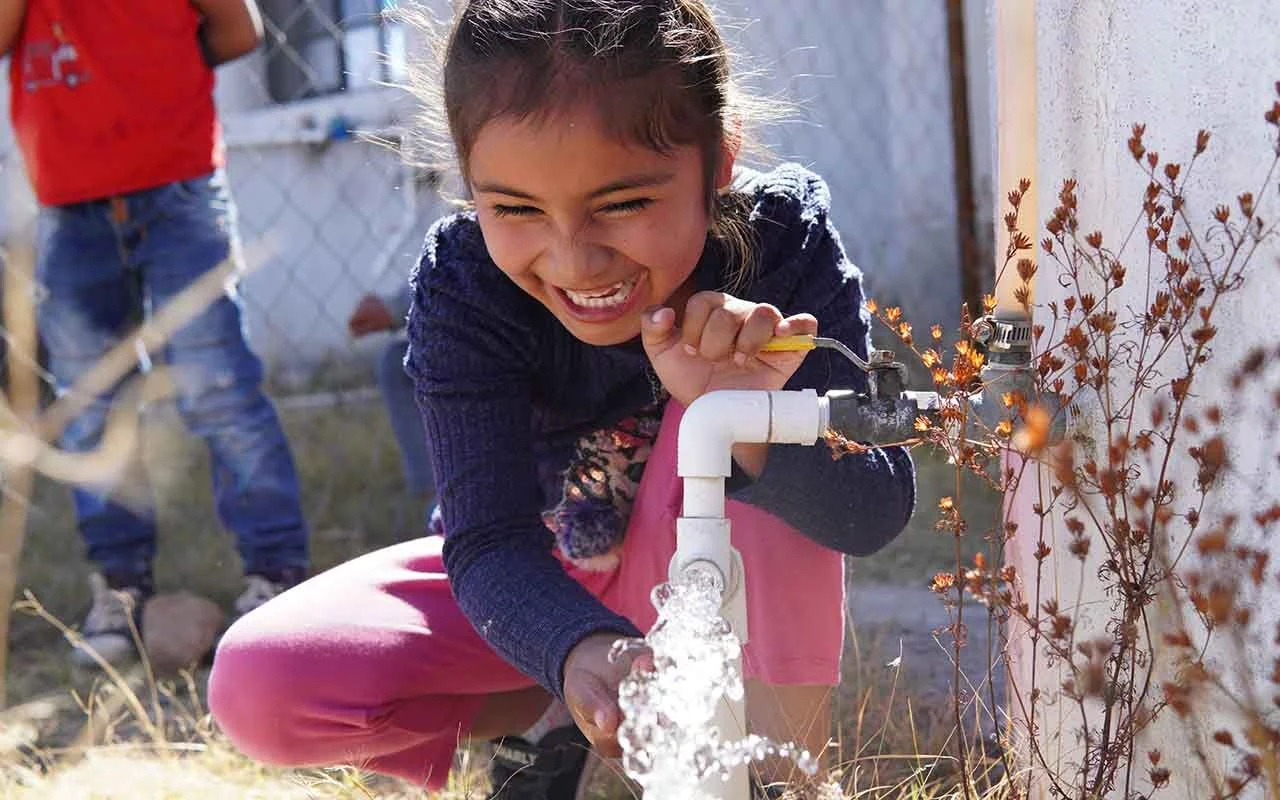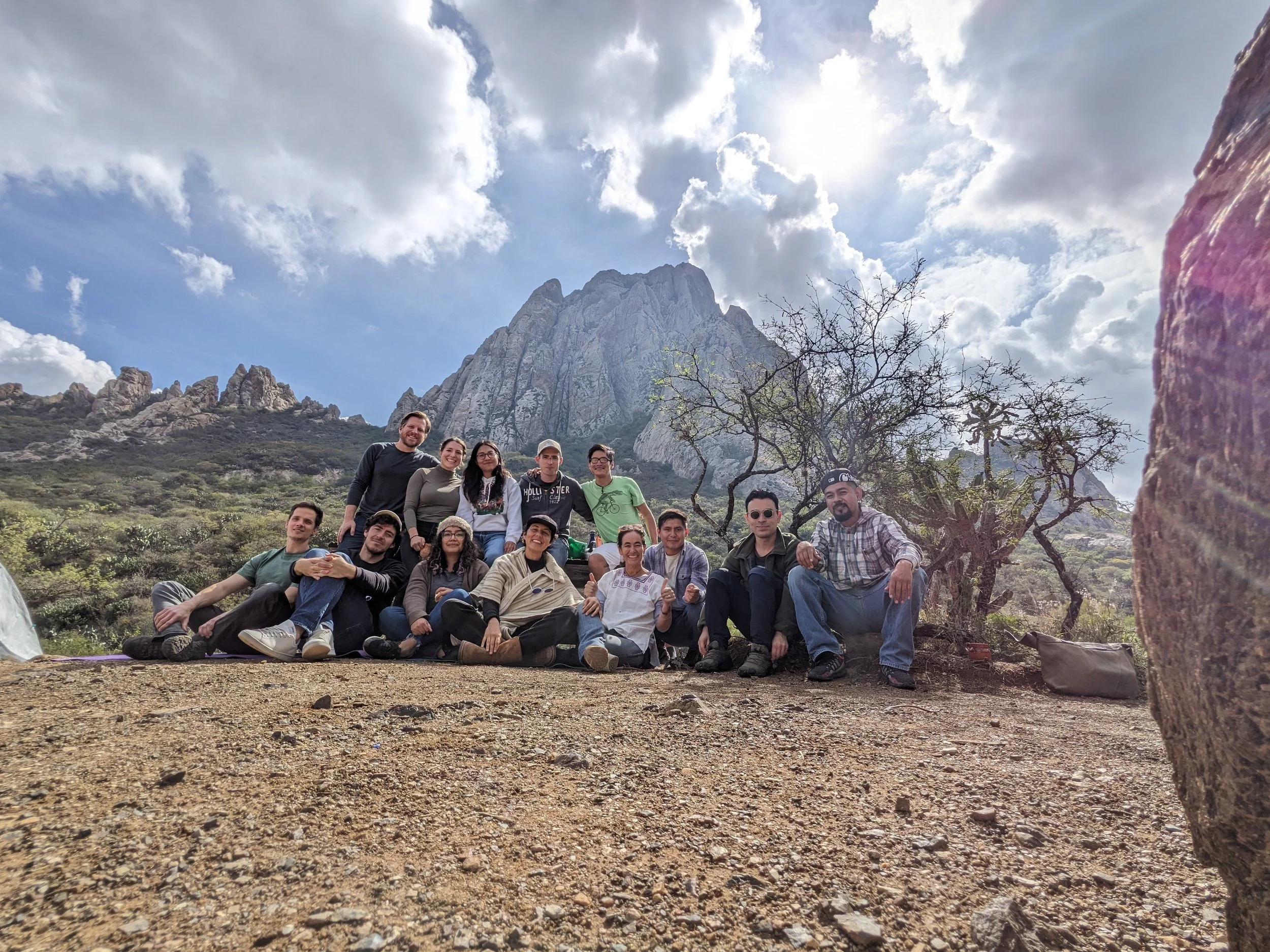
Our Story
In 2010, a group of actors from different organizations, movements, and universities, all working in different international development projects around the world, coalesced in San Miguel de Allende. Discouraged by our collective shortcomings – and outright failures – in many of these development-based projects, we began looking for better ways to do this work and developed several simple philosophies to help guide us, which ultimately became the foundation of CATIS Mexico (the precursor to Caminos de Agua), which we still follow to this day.
Our Core Philosophies
We live where we work. To ground ourselves in the local culture and the context of the region we are trying to impact, we believe it is fundamental to live here and not be disconnected from the day to day realities in an office abroad.
We have “skin in the game.” We develop open-source technologies, which are independently verified and certified, and ones that we ourselves use in our own homes and with our own families. In this way, we attempt to avoid the unfortunate development tendency to design “technologies for poor people,” which are often not thoughtful in their design and can be incomplete, alienated from the true needs, and, in general, create further disconnect with community partners.
We don’t enter vulnerable communities directly. We partner with grassroots organizations, community leaders and organizers, and others who better understand the needs and local contexts. We don’t define the problem ourselves. We listen.
Over the years, we have developed additional Core Philosophies to help guide our work and impact. Click below for a full list of the philosophies that guide our work.
-
We believe that we all have the right to clean water.
We work with great passion for what we do. We lead with humility. All voices and points of view are considered when making major organizational decisions.
We seek to create measurable and sustainable impact by being community-focused, data-driven, and science-oriented. We propose solutions appropriate to each situation.
We believe in the solutions we develop, and we use them ourselves (we have skin in the game).
We have a profound sense of belonging to our community. We live where we work. While focused locally, we collaborate globally.
We have a multidisciplinary worldview. We seek alliances. We welcome different points of view and opinions. We openly share our experience, ideas, wisdom, data, and technology.
Somos solidarios. We work collaboratively and with a deep sense of respect for others. We treat everyone with dignity. We consider the people and communities with whom we collaborate as our partners and the agents of their own change, not as victims or recipients of charity.
From the beginning, by partnering with communities in this way, it became clear that the severity of the regional water contamination and scarcity issues would take up all of our focus. So, in 2015, we embraced the idea that the local community needs to which we were responding had completely redefined us as a water organization, and we changed our name to Caminos de Agua to embrace our true identity. We were granted nonprofit status in 2012 in the state of Illinois in the US, and we received Mexican Asociación Civil (A.C) status in 2017.
To learn more about how we got to this point, as well as the first 10 years of our existence, we invite you to watch the following video.
Today, Caminos is a team of 18 full- and part-time employees, plus several graduate-level engineering interns, chosen from organizations such as Engineers Without Borders UK, Princeton in Latin America (PiLA), Silsoe Aid for Appropriate Development (SAFAD), and many other universities and institutions in Mexico, the U.S., and abroad. We have an incredibly diverse and dedicated 12-member Board of Directors who bring in decades of experience in many diverse fields. We’re a mix of immigrant residents and Mexicans, technologists and community organizers, researchers and educators — united by our concern for public health and welfare. As of 2024,, we have directly impacted more than 50,000 people throughout Mexico through our solutions and countless more through our educational programming and materials.
Caminos de Agua is organized as both a 501(c)(s) nonprofit organization in the U.S. as well as an equivalent Asociación Civil (A.C.) here in Mexico.
We achieve our mission through four main strategies:
-

Technology Development
We develop innovative low-cost solutions to technical water quality & scarcity challenges like our Groundwater Treatment System (GTS) to remove arsenic and fluoride from contaminated community water supplies, and won the 2022 RELX Environmental Challenge, as well as Aguadapt – our ceramic water filter for biological contaminants, which won a prestigious award from the American Society of Mechanical Engineers (ASME) in 2019. We distribute these solutions within our own projects here in the region as well as throughout the country, namely with partner NGOs.
-

Clean Water Access
We create access to clean water with communities at risk in the Upper Río Laja watershed, namely through the installation of rainwater harvesting systems, composting toilets, and our aforementioned water solutions. As of 2024, we have installed over 1,200 large-scale rainwater harvesting systems in our region. We believe in the importance of understanding local context and culture, and developing local models, in creating long-term, sustainable impact. We also believe those models can then be replicated well outside the boundaries of our own watershed, for communities facing similar water quality and scarcity challenges.
-

Raising Awareness
We raise the awareness of people and communities regarding local and global water challenges through our Water Quality Monitoring program, development of educational materials and programs, and through other forums and events. Our education programs are not limited to our region. We collaborate with governments and other stakeholders throughout the country, from Chihuahua to Chiapas, to help address our national water crisis.
-

Advocacy
We work to increase engagement and assist other stakeholders towards our common purpose. We partner with local communities, NGOs, grassroots organizations as well as municipal and state government to address severe water quality and scarcity issues in our region as well as participate in national coalitions and networks to try and affect coherent public water policies and water strategies at the federal level. We closely collaborate with cuttingedge national and international academic institutions to create solutions based on real-world conditions for communities most at risk.



